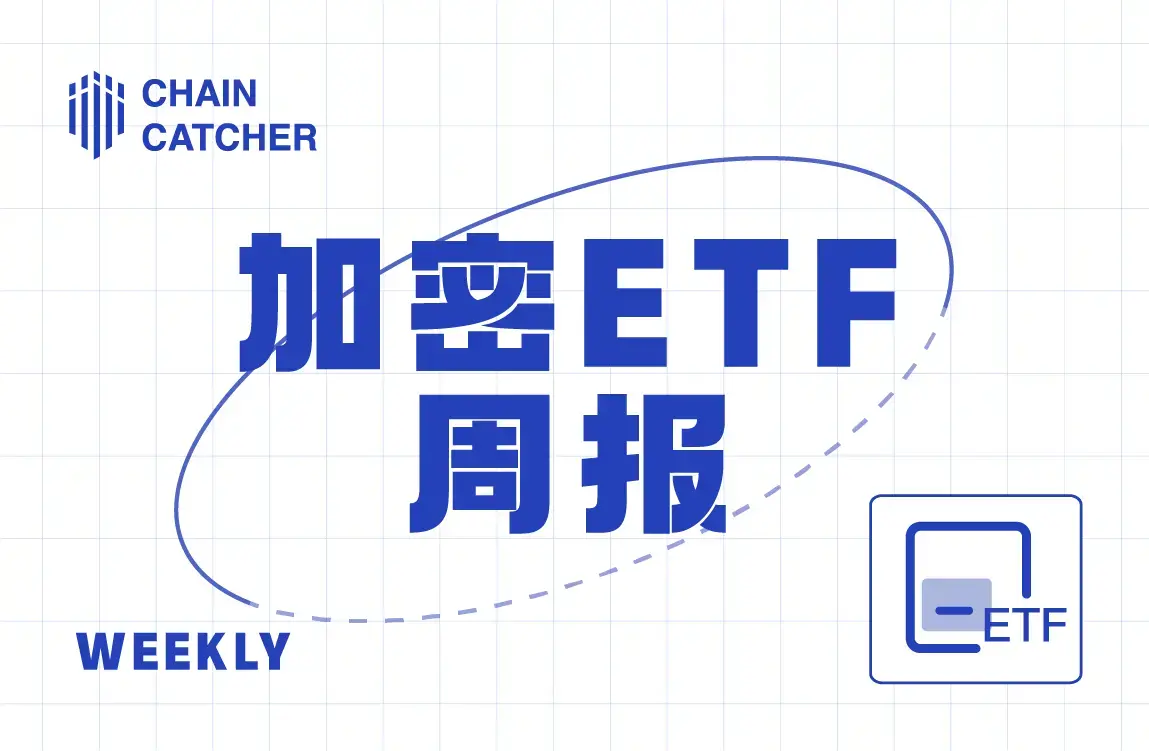Is the Prime Trust building about to collapse, leading to another unwarranted disaster for the cryptocurrency industry?
Author: Mia, ChainCatcher
Another large crypto custodian is on the brink of bankruptcy—Prime Trust, once favored by well-known crypto firms like Binance.US, FTX, and Celsius for asset storage and banking services, now finds itself in a predicament of "insolvency" and potential takeover by regulators.
Today, DB NEWSWIRE disclosed on its social media that the Financial Institutions Division (FID) of Nevada stated that Prime Trust lost access to old wallets as early as 2021 and misappropriated customer assets to repurchase cryptocurrencies. Prime Trust owes customers $85.67 million in fiat and $69.509 million in digital currency, but currently holds only $2.904 million in fiat and $68.648 million in cryptocurrency.
The news has caused quite a stir; as one of the major custodians in crypto, Prime Trust has been misappropriating customer funds since 2021. It is worth noting that Prime Trust had business dealings with FTX, Celsius, and others, raising serious concerns.
On June 23, the FID issued a cease-and-desist order to Prime Trust, commanding it to stop all activities that violate Nevada state regulations, claiming that the company's "overall financial condition has severely deteriorated," with operations facing massive deficits and potential insolvency.
Currently, the FID has requested the Nevada District Court to appoint a receiver to take over the daily operations of Prime Trust, thoroughly examine its financial status, and determine the best options for Prime's customers—either to rectify the situation and return the company to private management or to liquidate it.
In response to the cease-and-desist order, TrueUSD, one of Prime Trust's custodian clients, immediately stated that its stablecoin TUSD funds remain safe, asserting that TrueUSD has no exposure to Prime Trust's risks and is unaffected by the situation, with all user funds being secure. Earlier this month, on the 10th, TrueUSD had already announced a temporary halt to minting through Prime Trust.
Additionally, earlier this month, the crypto custodian BitGo had reached a preliminary agreement to acquire Prime Trust, which undoubtedly brought a glimmer of hope to the troubled Prime Trust. However, just 12 days after this announcement, BitGo suddenly announced the termination of the acquisition, effectively snuffing out Prime Trust's last hope for survival.
Today, Coinbase's product manager Conor Grogan also revealed on social media that, according to Arkham data, Prime Trust's wallets hold a total of $69.71 million in digital assets, with AUDIO holdings amounting to $61.51 million, accounting for 88% of its digital currency assets. It is well known that AUDIO is one of the tokens associated with FTX, which peaked at $4.4 but has now plummeted to $0.18, a drop of 24 times, likely closely tied to Prime Trust's impending collapse.
These various events quietly unfolded in June, seemingly accelerating the collapse of this crypto "edifice."
So, how did the once-glorious Prime Trust fall into such a predicament? Was it the butterfly effect of FTX's bankruptcy, or poor internal management? What could be the last straw that broke the camel's back? And what will happen to the stablecoin TUSD that it was responsible for custodian services?
The Rise and Fall of Prime Trust Nearing Bankruptcy
Prime Trust was founded in 2016 and is headquartered in Las Vegas, Nevada. Initially, it was not a company providing crypto services. It focused on custodial services, holding funds for early-stage companies' financing. In 2018, Prime Trust began to pivot towards cryptocurrency, agreeing to hold the dollar reserves for TrustToken, the issuer of the TrueUSD stablecoin. Prime Trust promotes innovation in the digital economy by providing financial infrastructure to fintech and digital asset innovators, with its main services covering token and fiat currency custody, fund processing, anti-money laundering, know-your-customer compliance, and trading technology services.
Scott Purcell, the founder and first CEO of Prime Trust, left in early 2021, after which Tom Pageler took over and was fired at the end of last year, with Jor Law serving as interim CEO. The turnover in leadership seems to hint at some internal issues within Prime Trust.
In fact, with the strong rebound of Bitcoin in 2021, Prime Trust's crypto business also flourished. Prime Trust revealed in its year-end press conference that it added hundreds of new accounts that year, with total assets under custody nearly quadrupling.
According to RootData, Prime Trust raised $63.98 million in a Series A funding round in July 2021, led by Mercato Partners' growth equity fund Traverse, with participation from Samsung Next, Kraken Ventures, and Seven Peaks Ventures. In June of the following year, Prime Trust announced the completion of a $107 million Series B funding round. The two rounds of financing totaled over $170 million, and such a large amount, just less than a year later, began to show signs of "insolvency," reflecting serious operational issues. Prime Trust founder Scott Purcell revealed in an interview that internal management began to fall into chaos after he left the company, and although they raised a lot of money from investors, the results were minimal.
As the cryptocurrency rebound faded, Prime Trust's clients, the crypto lending platform Celsius Network and the crypto exchange FTX, both filed for bankruptcy in the second half of 2022. Celsius sued Prime Trust in August 2022, attempting to recover over $17 million in cryptocurrency held by the latter. Celsius stated that when the agreement between the two parties was terminated in June 2021, Prime Trust had returned $119 million worth of crypto assets to Celsius but still refused to fulfill its obligation to transfer 398 BTC, 196,268 CEL tokens, 3,740 ETH, and 2 million USDC. In subsequent bankruptcy hearings, Prime Trust agreed to return these assets.
Greater blows followed as the collapse of the FTX crypto empire also dragged Prime Trust into its scandal vortex. It is reported that FTX US had its dollar reserves held by Prime Trust, and there were personal financial dealings between Prime Trust and FTX executives. It was revealed that FTX founder SBF had used Prime Trust to make donations to a political action committee he funded, and the $500,000 donation Prime Trust made to the state Democratic Party also traced back to former FTX executive Nishad Singh.
The successive bankruptcies of major clients put Prime Trust in a difficult position. To cut operating costs, Prime Trust chose to lay off a third of its staff at the beginning of this year and halted all operations in Texas.
In fact, as a custodian, Prime Trust should have been a relatively safe part of the financial system, not engaging in high-risk activities. As an intermediary, Prime Trust helped digital asset companies place cash within the banking network, becoming an important partner for digital asset companies that found it difficult to directly access the banking system. Therefore, when Silvergate and Signature Bank collapsed, Binance.US also chose to hold customer funds through Prime Trust in April this year.
However, earlier this month, the SEC sued Binance.US and sought to freeze assets related to BAM Management US Holdings and BAM Trading Services, the holding and operating companies of Binance.US. Prime Trust lost another important client.
On the 14th of this month, Prime Trust's subsidiary banq filed for bankruptcy protection in the Nevada District Bankruptcy Court, stating that the company has approximately $17.72 million in assets and $4.5 million in liabilities. Meanwhile, Prime Trust's crypto client, the crypto lending institution Abra, also faced "securities fraud" charges from the Texas Securities Commission, claiming it had been bankrupt or near bankruptcy for months.
Subsequently, the FID began to take formal action against Prime Trust on the 23rd of this month. Perhaps influenced by this cease-and-desist order, the crypto custodian BitGo also announced its withdrawal from the tentative acquisition of Prime Trust.
After being abandoned by regulators and potential acquirers, the once-thriving Prime Trust has gradually approached the brink of bankruptcy. Currently, the company has halted all cash and cryptocurrency deposits and withdrawals, facing the risk of liquidation. Furthermore, crypto enterprises that have placed assets with Prime Trust also face uncertain risks and futures.
Prime Trust's Sudden Closure Triggers a Chain Reaction
Prime Trust's sudden closure has inevitably caused ripples among its client base. If Prime Trust truly cannot escape the fate of bankruptcy, the associated crypto enterprises will also not be spared.
Securitize, a blockchain company that holds investor cash deposits for Prime Trust's trading platform, stated that some functions have already been suspended and that it will transition to a new custodian as soon as possible, ensuring customer safety. The Estonian crypto exchange Coinmetro also stated on its official social media that it is currently unable to process new dollar transactions due to the suspension of deposits and withdrawals by Prime Trust.
Additionally, the financial advisory platform Swan Bitcoin previously listed Prime Trust as a custodian and included all tokens from the TradeFi financial advisory platform as being held by Prime Trust; Swan Bitcoin has now revealed plans to terminate its agreement with Prime Trust.
Although Prime Trust has not publicly disclosed its specific custody amounts, official information shows that Prime Trust's custody service client base spans a wide range of financial and technology industries, including but not limited to digital asset exchanges Bitstamp, Bittrex Global, OKCoin, Zilliqa, and securities issuance platforms Securitize, Harbor, SeriesOne, as well as real estate investment platforms RealBlocks and Elevated Returns. If Prime Trust fails to fulfill its custodial duties, clients' assets may be at risk of loss or freezing. Moreover, if Prime Trust goes bankrupt, its clients may be unable to continue using the custodial services it provides.
Furthermore, if Prime Trust goes bankrupt, the FDIC, which regulates it alongside the Nevada Financial Services Authority, may provide protection to clients, with a maximum insurance amount of $250,000 per client.
Will TUSD (TrueUSD) Be Affected?
After Prime Trust suspended deposits and withdrawals, TrueUSD informed customers with associated accounts in an email that they would be unable to mint or redeem the stablecoin TUSD during Prime Trust's operational suspension. Following Binance's aggressive promotion of its platform, TrueUSD has transitioned from an obscure stablecoin project to mainstream visibility, with its market share rapidly increasing. According to Coinmarketcap data, as of the time of writing, TUSD's total issuance is close to $3.14 billion.

Reportedly, TrueUSD is a stablecoin issued by TrustToken on Ethereum and Binance Smart Chain. Holders can mint an equivalent amount of TUSD by depositing dollars, and they can also redeem TUSD for dollars at any time. The deposited dollars are kept in different bank accounts and are regulated and audited by third-party institutions. Initially, the dollar reserves backing TrueUSD were held by Prime Trust. However, TrustToken has now established partnerships with other custodians to mitigate the risks posed by the bankruptcy of a single custodian.
Previously, TrueUSD faced FUD due to the suspension of minting TUSD with its partner Prime Trust, resulting in a brief decoupling. TrueUSD quickly responded on social media, stating that "the minting and redemption services for TUSD are unaffected and will continue to operate as usual," after which TUSD's price returned to normal.

In the recent series of fluctuations, including Prime Trust's cessation of acquisition by BitGo, scrutiny by Nevada regulators, and the suspension of deposits and withdrawals, TUSD seems to have remained unaffected. TrueUSD reiterated that it will maintain multiple channels for minting and redeeming dollars.
Today, according to reserve reports, TUSD has $26,434 in a U.S. deposit institution that has been ordered to stop withdrawals, of which $26,269 is related to customer withdrawal and token redemption, but it does not specify which U.S. institutions the funds are held in. We can boldly speculate that this institution is most likely Prime Trust, and such a small amount of funds compared to TUSD's total issuance of $3.13 billion is negligible.
The extent of exposure remains unclear. Although TUSD previously stated that it has "no exposure" to Prime Trust, if Prime Trust applies for bankruptcy protection, the most likely impact would be restrictions on TUSD issuance; secondly, the process of redeeming TUSD for dollars or other currencies may face limitations or delays, causing inconvenience for TUSD holders; furthermore, if TUSD's issuance is restricted or the redemption process is delayed, it may increase market uncertainty regarding TUSD, leading to price volatility.
While Prime Trust is gradually heading towards the abyss, it has not impacted the development of TUSD. In fact, TUSD's supply increased from just over $2 billion on June 14 to $3.13 billion on June 21, a rise of 56.5%, just a week before Bitcoin broke the $30,000 mark.
Conclusion
After experiencing the bankruptcy of FTX in 2022, followed by the collapses of Silvergate and Signature Bank this year, and the SEC lawsuits involving Binance and Coinbase, major crypto enterprises seem to be quietly enhancing their risk resilience, preparing for "black swan events" at all times.
Prime Trust is currently still on the edge of bankruptcy. At present, the official stance has not been commented on, but its credibility in the crypto industry has clearly dropped to "freezing point." Whether there are still industry institutions willing to extend an olive branch at this moment to rescue it from dire straits, or if another minor storm will become the last straw that breaks the camel's back, remains to be seen.













